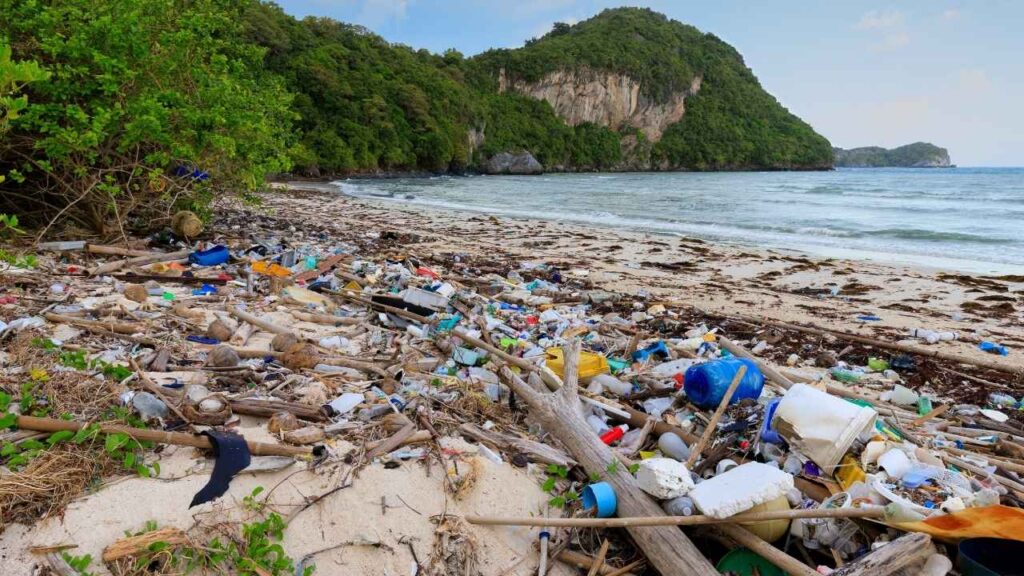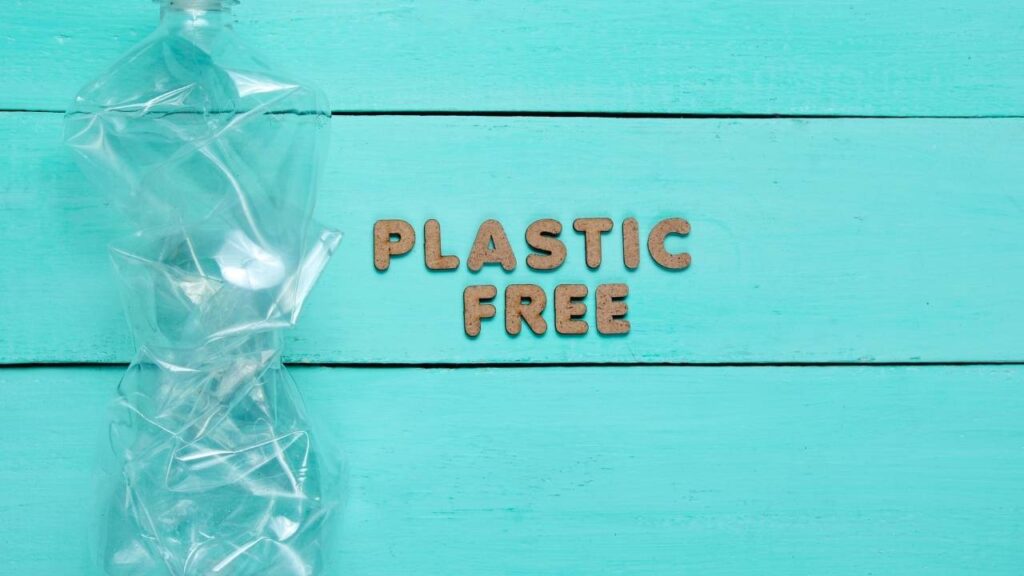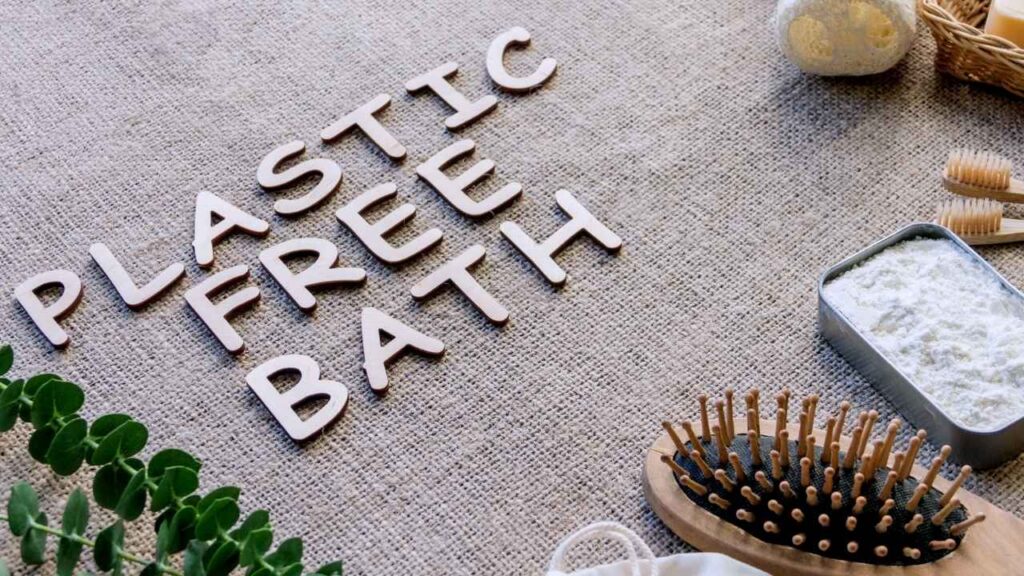The Ultimate Guide to Living Plastic Free (Almost!)
Plastic Free living may seem overwhelming in a world where plastic is everywhere. However, as people become more aware of the negative effects of plastic pollution on the environment, they are actively looking for ways to minimize their plastic usage.

In this comprehensive guide to living a plastic-free life (well, almost!), we will focus into practical advice, creative solutions, and the ups and downs of adopting a plastic-free lifestyle. By exploring these tips and strategies, we can all contribute to reducing our plastic footprint and making a positive impact on the planet.
Your Common Queries
Here are your frequently asked questions from Search On Google :-
Is it really possible to live completely plastic-free?
Eliminating all plastic use may seem like an impossible task, considering how much our society depends on plastic products. It’s surprising to find plastic in so many different aspects of our lives. However, it is definitely possible to make a big difference by cutting down on plastic consumption.
You can start by replacing single-use plastic items with reusable options. For example, using a refillable water bottle instead of buying bottled water or bringing your own cloth bags to the grocery store instead of using plastic ones. These small changes can add up to a significant reduction in your plastic waste.
Making mindful choices about the products you buy can also help in reducing your plastic footprint. Opt for items with minimal or recyclable packaging, choose products made from sustainable materials, and support businesses that prioritize eco-friendly practices. By being more conscious of your consumption habits, you can play a part in lessening the impact of plastic on the environment.
What about plastic in processed foods?
Regrettably, plastic wrapping is commonly used in processed food products. Even though you may not have control over the packaging during the manufacturing process, you do have the power to make conscious decisions when shopping. Try to select products with less packaging or choose loose fruits and vegetables, as well as package-free alternatives whenever they are available.
I travel a lot. How can I maintain a plastic-free lifestyle on the go?
When you decide to travel without using plastic, it’s important to do some additional preparation. Make sure to bring along reusable water bottles, containers for your snacks, and utensils so you don’t have to depend on disposable items.
Look into accommodations that are environmentally friendly and try to reduce their plastic usage. If you’re taking a flight, remember to pack your own toiletries in containers that can be refilled to avoid using the small plastic bottles provided on the airplane.
Learn About :-
The Plastic Problem

Plastic pollution has become a major issue that is causing serious harm to our environment, animals, and people. The situation has become so critical that it is now considered a threat to the balance of ecosystems, the well-being of wildlife, and the health of humans.
High Plastic Production
The production of plastic has experienced a significant surge in recent years. In 2019 alone, an astonishing 460 million tones of plastic were produced, marking a remarkable increase compared to previous years.
This growth has been particularly remarkable in the last two decades, with production rates doubling during this period. These figures highlight the immense scale at which plastic is being manufactured and emphasize the urgent need for sustainable solutions to address the environmental impact of this booming industry.
Waste Generation
Every year, we produce an enormous quantity of plastic waste. According to Statista, it is estimated that approximately 350 million tones of plastic waste is generated worldwide. If current trends persist, projections show that this amount could triple by the year 2060.
Ocean Pollution

Every year, a large amount of plastic waste finds its way into the oceans, with experts estimating that between 1 to 2 million tones of plastic are dumped into the sea annually. This means that approximately 8 million individual pieces of plastic are introduced into the ocean on a daily basis.
Micro Plastic Threat
The problem goes further than just big plastic pieces. Our oceans are filled with countless microplastics, which are small plastic particles that are polluting the waters. Some research even indicates that the total weight of these microplastics could be equivalent to the weight of 1,345 adult blue whales, according to Surfers Against Sewage.
Wildlife Impact
The impact on marine life is absolutely catastrophic. Every year, an alarming number of approximately 100,000 marine mammals and sea turtles, along with a staggering one million sea birds, lose their lives due to the detrimental effects of plastic pollution.
This distressing statistic, as reported by Surfers Against Sewage, highlights the dire consequences that our oceans and its inhabitants face as a result of our careless actions. It is crucial that we take immediate action to address this issue and work towards finding sustainable solutions to protect our marine ecosystems.
These alarming statistics highlight the critical importance of decreasing our dependence on plastic and embracing eco-friendly alternatives. It is crucial for us to take action now to protect our environment and ensure a healthier future for generations to come.
By making conscious choices and supporting sustainable practices, we can make a positive impact on the planet and help preserve its natural resources for the long term.
Further Reference :- https://www.nationalgeographic.com/environment/article/plastic-pollution#:~:text=Every%20year%2C%20about%20eight%20million,%2C%20more%20flexible%2C%20and%20durable.
Practical Tips for Living Plastic Free (Almost!)
Although it may seem difficult to completely eliminate plastic from your life, there are numerous practical measures you can adopt to significantly decrease your plastic usage. To embark on this journey, here are a few helpful suggestions to kickstart your efforts:

Plastic Free on the kitchen
- Ditch Disposable Plastics: Invest in reusable containers for food storage. Use glass jars for dry goods and beeswax wraps or silicone lids for covering leftovers.
- Embrace Reusable Bags: Carry reusable shopping bags made from cloth, canvas, or mesh for groceries and farmers markets.
- Plan Your Meals: Reduce impulse buys and food waste by planning your meals and creating a grocery list.
- Bulk Up: Purchase staples like grains, nuts, and dried fruits in bulk from stores that allow you to bring your own containers.
- BYO Utensils and Containers: When getting takeout or attending potlucks, bring your own reusable utensils and containers to avoid disposable options.
- Skip the Plastic Produce Bags: Use reusable mesh bags or simply handle loose fruits and vegetables directly at the checkout.
On The Go Essentials
- Mighty Mug: Invest in a high-quality, reusable water bottle that keeps your drinks hot or cold for extended periods.
- Coffee on the Go: Carry a reusable coffee mug and ask your barista to skip the disposable cup sleeve.
- Straw Power: Ditch plastic straws! Opt for reusable metal, glass, or bamboo straws.
- Shop with Purpose: Keep reusable shopping bags in your car or backpack so you’re always prepared for unplanned shopping trips.
- Pack Your Lunch: Prepare your lunch in reusable containers to avoid pre-packaged options wrapped in plastic.
Plastic Free On The Bathroom
- Solid Swaps: Consider switching to bar soap, shampoo bars, and conditioner bars to eliminate plastic bottles.
- Refill and Reuse: Look for refillable options for your favorite personal care products. Some stores offer shampoo, conditioner, and even dish soap in bulk refillable containers.

- Embrace the Natural: Opt for natural alternatives like a wooden loofah or a silicone menstrual cup to reduce plastic use in your hygiene routine.
- DIY Cleaning Solutions: Explore making your own cleaning solutions with vinegar, baking soda, and essential oils instead of buying plastic-bottled cleaners.
Plastic Free on the shopping
- Choose Mindfully: When shopping for new items, prioritize products with minimal or recyclable packaging.
- Support Sustainable Brands: Research companies committed to sustainability and reducing plastic waste in their products and packaging.

- Embrace Second-Hand: Consider buying pre-loved clothes, furniture, and other items instead of new ones wrapped in plastic.
- The Power of “No”: Politely decline plastic bags, straws, and other unnecessary plastic items whenever possible. Let businesses know you prefer plastic-free alternatives.
The Challenges of Going Plastic Free Life.
While there are many advantages to living a life free of plastic, there are definitely some obstacles that you may face along the way. Here are a few of the main challenges that you could come across:
Accessibility
It can be quite challenging to find alternatives to plastic for all aspects of your life. This may involve searching for grocery items that are not packaged in plastic, opting for hygiene products that are not wrapped in plastic, and being mindful of choosing clothing made from natural materials instead of synthetic fibers.
Higher Initial Costs
There are eco-friendly options available that don’t involve using plastic, such as reusable containers and bamboo toothbrushes. However, these alternatives may be more expensive initially when compared to single-use plastic items.
Planning and preparation
Avoiding plastic in your daily life can be a bit challenging, as it involves careful organization and foresight. It’s important to remember to always carry reusable shopping bags, containers, and utensils whenever you leave the house. Additionally, you may have to do some research to find stores that sell products without plastic packaging.
Convenience
Plastic has become a significant part of our everyday routines, from disposable packaging to common household products. Escaping from this culture of convenience will demand intentional actions and adjustments to our way of living.
Further Reference on PDF :- https://jambeck.engr.uga.edu/wp-content/uploads/2022/02/science.1260352-Jambeck-et-al-2015.pdf
Here are some additional tips to consider
Focus on Progress, Not Perfection
Don’t get discouraged if you can’t eliminate plastic entirely right away. Start by making small changes and gradually reduce your plastic footprint over time.
Join a community
Engaging with like-minded individuals who share an interest in living a plastic-free lifestyle can offer a multitude of benefits. By connecting with others who are passionate about reducing plastic waste, you can find a source of motivation and encouragement to stay committed to your own plastic-free journey.
Additionally, these connections can serve as a valuable resource for exchanging tips and tricks on how to navigate the challenges of living without plastic. Furthermore, by sharing experiences with others who are on a similar path, you can gain valuable insights and learn from their successes and setbacks, fostering a sense of community and camaraderie in your pursuit of a plastic-free existence.
Related Blog Post :- The Power of Community Engagement in Sustainable Living.
Support Businesses Making a Difference
Choose to support companies that are actively taking steps to minimize plastic waste. By doing so, you are communicating to businesses that there is a growing desire for eco-friendly initiatives. This can encourage more companies to adopt sustainable practices and reduce their environmental impact.
The Advantages of Starting a Plastic-Free Lifestyle
Impact on the environment
Individuals have the power to make a positive impact on the environment by cutting down on their use of plastic. By doing so, they can greatly reduce the amount of carbon emissions they contribute to the atmosphere and help protect ecosystems and wildlife from the harmful consequences of plastic pollution. Taking small steps like using reusable bags, bottles, and containers instead of single-use plastics can go a long way in making a difference.
Numerous Health Benefits
Living a lifestyle free of plastic helps to decrease the chances of being exposed to dangerous chemicals like bisphenol A (BPA) and phthalates that are commonly present in plastic items. By doing so, individuals can lower the likelihood of experiencing negative impacts on their health.
Plastic-free living promotes the use of sustainable materials such as glass, metal, and natural fibers, conserving finite resources and promoting a circular economy.
Conservation of resources
Living a lifestyle free from plastic encourages the utilization of eco-friendly materials like glass, metal, and natural fibers, which helps in preserving limited resources and fostering a circular economy.
By opting for alternatives to plastic, You can contribute to reducing waste and minimizing the negative impact on the environment. Making conscious choices in daily life, such as using reusable containers and bags, can make a significant difference in creating a more sustainable future for generations to come.
Personal Fulfillment
Choosing to live a life free of plastic helps individuals feel more accountable for their actions and more empowered to make a positive impact on the world around them. This lifestyle change not only enhances one’s well-being but also strengthens their bond with the natural environment, creating a deeper sense of connection and appreciation for the planet we call home.
Related :- Personal Life Story of Author Bibek Chalise living a sustainable life.
Remember, progress over perfection is key! Start small, incorporate these tips into your routine, and celebrate your achievements. Every step you take towards a plastic-free lifestyle makes a difference.
Conclusion
In conclusion, Adopting a lifestyle free of plastic does not mean striving for flawlessness, but rather involves actively choosing to decrease plastic usage and lessen our ecological footprint. Although switching to a plastic-free lifestyle may present obstacles, the advantages, both for the environment and our own health, are clear.
Through embracing eco-friendly options, promoting change, and motivating others to participate in the cause, we can collaboratively strive towards a brighter, more sustainable future for future generations.
If you still have some queries left, Please feel free to reach us at contact@wecareearth.com . We will be glad to help & guide you in anyway possible. Visit We Care Earth for eco conscious articles on sustainable living, Climate Change, Sustainable Gardening & Green Brands.
Major part of this blog post is made with the support of Google Ai Chat Bot ‘Gemini’
